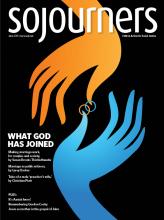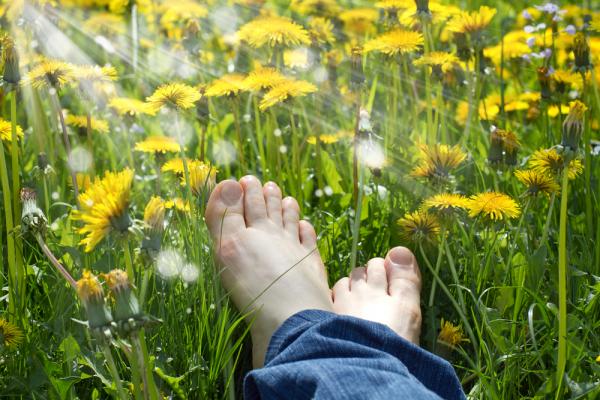IN ORDER TO imagine the solutions needed for our environmental crises, we must understand the depth and breadth of their severity—but understanding can all too easily lead to guilt, despair, and hopelessness.
Our response to climate change can no longer be about fear. The more overwhelmed, fearful, guilty, or bitter we are, the less likely we are to spring into action. Corporate monopolies, fossil fuel industry giants, and big money lobbyists have succeeded in getting us to be our own worst enemy. Anger and outrage can only get us so far, and no one knows that better than they do. And in my case, only the good Lord, and my loving husband, know the depth of my daily, ongoing struggle with this.
So what is a faithful, God-fearing, creation-loving person to do? One thing that I have found helpful is to purposefully set aside time to immerse myself in nature, appreciating God’s creation in its vast and intricate beauty. Even a 15-minute stroll through a city park helps me to calm down and regain perspective. Watching fuzzy animals, finding colorful creepy crawlies, and overhearing snippets of people’s conversations gives me pause and reminds me that ours is very complex and witty God.
Another thing essential to sustaining myself in this work is to interact with others for whom creation care and eco-justice is a passion or vocation. The interpersonal relationships build community and nurture my soul. And in them we most deeply experience the grace and presence of the Holy Spirit, at work among us, inspired by one another through our faith and common efforts.
Prior to coming to Sojourners, I coordinated multiday workshops for Lutherans Restoring Creation. Each one gave pastors and lay leaders an opportunity to share best practices and resources for integrating creation care into all areas of church life: worship, education, buildings and grounds, advocacy, and discipleship at home and work.
Read the Full Article

